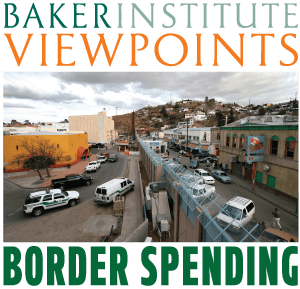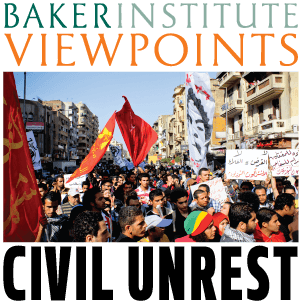The broader implications of enhancing border surveillance capabilities
In the third of a six-part Baker Institute Viewpoints series, experts respond to the question: What are the implications of expanding border security?
Civil libertarians are already expressing alarm about increasing domestic surveillance capabilities at the border. This concern gestures toward a broader fear that contemporary threats to national security, particularly terror threats, have distorted the historical legal grounds that protect U.S. citizens from government surveillance and data collection. In actuality, if there is one area where the law provides well-recognized and expansive justification for domestic surveillance, it is at the border. Continue Reading

